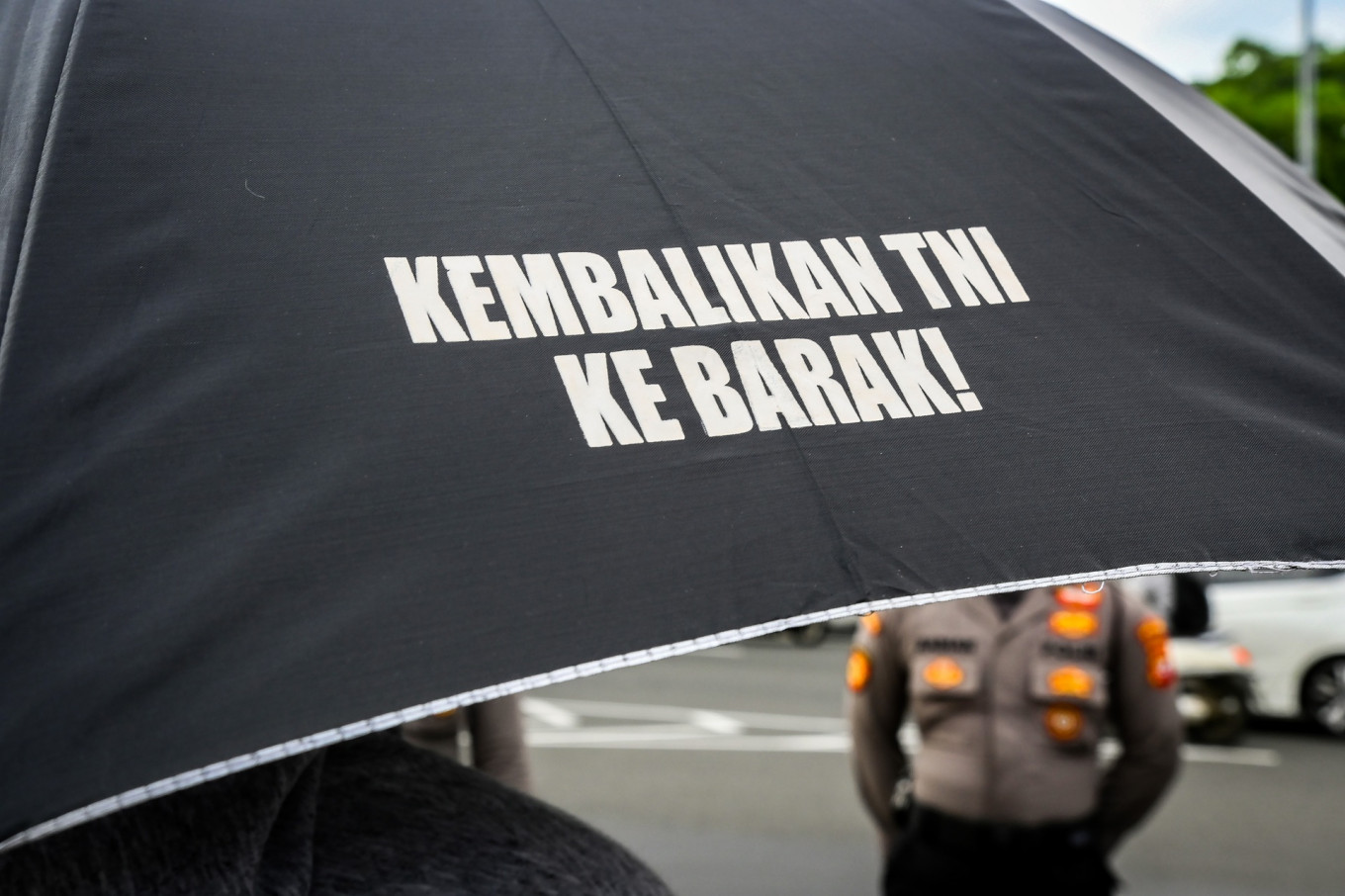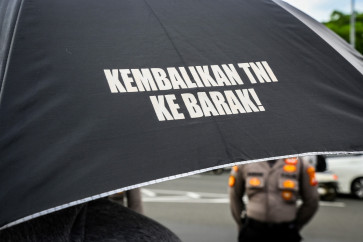Popular Reads
Top Results
Can't find what you're looking for?
View all search resultsPopular Reads
Top Results
Can't find what you're looking for?
View all search resultsTNI Law, civilian-military relations and leadership in social change
It seems many civilians still feel more confident with the presence of military figures, both in government and social life.
Change text size
Gift Premium Articles
to Anyone
I
ndonesia’s sweeping reforms at the end of the 20th century marked a significant shift in the military's role, particularly with the abolition of the dwifungsi (dual function) of the Indonesian Military (TNI), then called the Armed Forces (ABRI).
However, over time, the interaction between civilian and military sectors has continued to display patterns of dependency by the former on the latter that warrant further analysis. The discourse, as well as controversy, surrounding the revision of Law No. 34/2004 on the TNI does not merely concern military dominance but also the characteristics of leadership and the policy-making process at the elite level.
One of the primary factors contributing to civilians’ reliance on military figures is the discipline that has become a trademark of military personnel. This discipline includes decisiveness in decision-making, adherence to hierarchy and efficiency in task execution.
In many cases, civilians openly acknowledge their weaknesses in discipline, both individually and organizationally. These weaknesses often hinder the effectiveness of civilian governance, ultimately fostering greater trust in military figures in both national and local leadership.
A number of opinion surveys conducted in the last few years demonstrate high trust in the military as against civilian institutions, most likely because of the military’s distance from practical politics. Military professionalism, therefore, has helped increase public confidence in the TNI.
In a democratic system, the interaction between civilians and the military should ideally be complementary rather than competitive. However, the phenomenon in Indonesia suggests that many civilians still feel more confident with the presence of military figures, both in government and social life. This is reflected in the high number of retired TNI officers being entrusted with strategic positions, including in civilian institutions, even at the neighborhood level.
Furthermore, the trend of adopting military-like uniforms and attributes in civilian institutions indicates a tendency to embrace the symbols of authority and discipline inherent in military institutions.



















